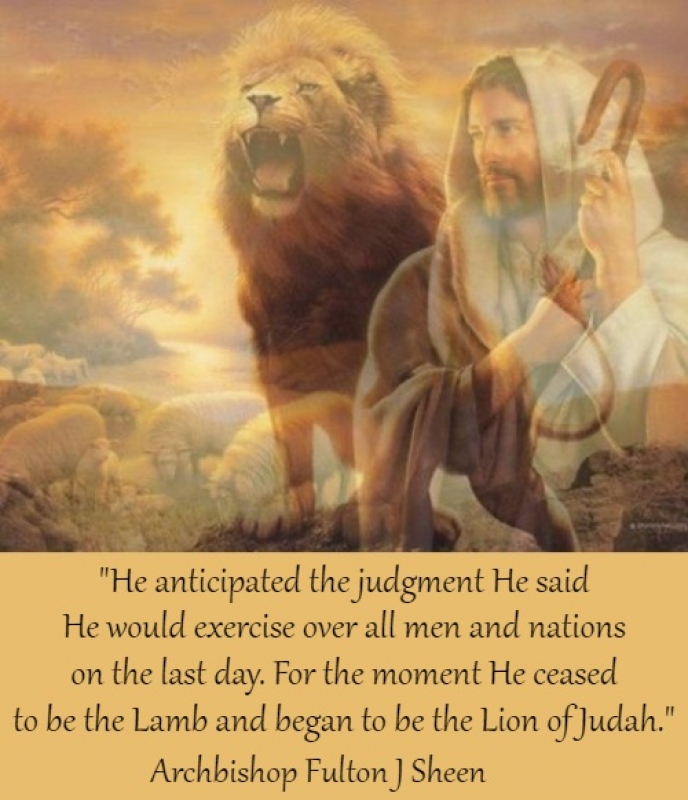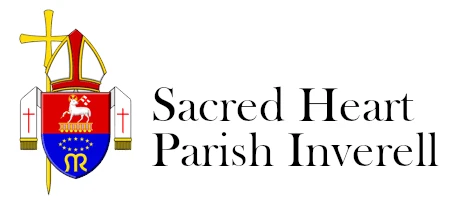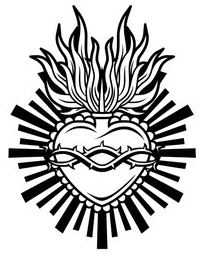27th Sunday in Ordinary Time (Year A) - 8 October
8th October 2023

27th Sunday in Ordinary Time (Year A) - 8 October
“Prayer is nothing else than union with God. When the heart is pure and united with God it is consoled and filled with sweetness; it is dazzled by a marvellous light.” - St John Marie Vianney
A reflection on today's Gospel reading by the Venerable Archbishop Fulton J Sheen:
"[On the] Tuesday of the week in which He died, Our Lord told one of His last parables which tied up the prophecies of the Old Testament and pointed to what would happen to Him within seventy-two hours. The temple rulers had just been questioning Our Lord concerning His authority. The position that they took was that they were representatives and guardians of the people; therefore, they must prevent the people from being misled. Our Lord answered them in a parable showing them the kind of guardians and guides they were.
"‘There was a man who planted a vineyard, and put a wall round it, and dug a winepress and built a tower in it’ (Mark 12:1).
"The One Who planted the vineyard was God Himself, as His listeners already knew from reading the first few verses of the fifth chapter of Isaias. The wall that He put around it was a wall that separated them from the idolatrous nations of the Gentiles and allowed God to tend His fruitful vine, Israel, with special care. The winepress, which was hollowed out of rock, had some reference to the temple services and sacrifice. The tower whose purpose was the watching and the guarding of the vineyard symbolised the special vigilance God exercised over His people.
"‘And then let it out to some vine-dressers’ (Mark 12:1).
"This meant the commitment of responsibility to His own people who were so guarded from pagan infection. This commitment began with Abraham when he was called out of the land of Ur, and with Moses, who gave his people commandments and the laws of worshiping the true God. As God had said through His prophet Jeremiah: ‘Early I sent them to your doors, the prophets that were servants of Mine’ (Jeremiah 35:15).
"From that moment on, the vineyard of Israel should have given to God the fruits of fidelity and love proportionate to the blessings they had received. But when the owner of the vineyard sent three of his servants successively to gather fruits, they were maltreated by the vine-dressers. What these divine messengers, or prophets, suffered is described in the eleventh chapter of Hebrews. St. Stephen, the first martyr, later on would describe the infidelity of the people to the prophets.
"‘There was not one of the prophets they did not persecute; It was death to foretell the coming of that Just Man, Whom you in these times have betrayed and murdered’ (Acts 7:52).
"But God’s love was not wearied out with the cruelty of the vine-dressers. There were fresh calls to repentance after each new act of violence.
"‘And he sent other servants on a second errand, more than he had sent at first, but they were used no better’ (Matthew 21:36).
"According to Mark, some were beaten over the head and used outrageously, and others killed, which signified the climax of iniquity. These statements are general, but they could nevertheless refer to the beating which was given to Jeremiah and the killing of Isaiah.
"‘So the owner of the vineyard said, What am I to do? I will send my well-beloved Son; Perhaps they will have reverence for Him’ (Luke 20:13).
"God is represented as soliloquising with Himself as if to throw His love in clearer light. What more could He do for His vineyard than He had done? The “perhaps” was not only a doubt that the Divine Son would be accepted, but also an expectation that He would not. The history of God’s relation with a people was told in a few minutes.
"Those who listened to Our Blessed Lord fully understood the many references He had made to the way of the prophets who had been set upon by the people and their message repudiated. They had also heard Him declare Himself to be the Son of God. Under the thin veil of the parable, He was answering the question, namely, by what authority He did certain things. Our Lord here not only reaffirmed the personal relationship of Himself to His Heavenly Father, but also His infinite superiority over the prophets and servants.
"Then revealing to His listeners the death that He would undergo at their hands, He continues:
"‘But when the vine-dressers found His Son coming to them, they said among themselves, this is the heir; Come, let us kill Him, and seize upon the inheritance. And they laid hands on Him, thrust Him out from the vineyard and killed Him’ (Matthew 21:38–38).
"The vine-dressers are here represented as knowing the Son and the Heir of the vineyard. With unmistakable clarity, the Lord revealed the dreadful doom He would suffer at their hands, that He would be cast “out of the vineyard” to the hill of Calvary which was outside Jerusalem, and that He was the Father’s last appeal to a sinful world. There were no illusions about the reverence that He would meet from mankind. Rebuffs and injuries and insults would be the greeting extended to the Son of the Heavenly Father.
"Within three days of the telling of the story, it came true. The accredited keepers of the vineyard, such as Annas and Caiphas, cast Him out from the city on to a hill that was a dump and put Him to death. As Augustine said: “They slew Him, that they might possess, and because they slew, they lost.”
"After Our Lord said that those who killed the Son would lose the inheritance, He then sent the minds of His hearers back to Sacred Scripture.
"‘But He fastened His eyes on them, and said, Why then, what is the meaning of those words which have been written, the very stone which the builders rejected Has become the chief stone at the corner?’ (Luke 20:17).
"This was a quotation from their very familiar one hundred and seventeenth Psalm:
"‘The very stone which the builders rejected has become the chief stone at the corner; This is the Lord’s doing, and it is marvellous in our eyes.’
"The Old Testament contained many prophecies concerning Our Lord as a stone. Five times Our Blessed Lord had availed Himself of the parable of the vine. Now after using the figure to indicate the cruelty to God’s only begotten Son, sent from Heaven to secure His Father’s rights, He dropped the figure altogether and took up the figure of the cornerstone. The Son of God would be the despised and rejected stone. But He foretold that He would be the stone Who would unite and bind all together.
"Never is there a mention of the tragedy without the glory; so too here the evil treatment the Son received is compensated for by the ultimate victory, in which as the cornerstone He unites Jew and Gentile in one holy house. Thus the builders of His death were overruled by the Great Architect. Even their own unconscious rejection of Him made them unconscious, voluntary instruments of His purpose. Whom they refused, God would raise up as King. Under the figure of the vineyard He foretold His death; under the figure of the cornerstone, His Resurrection. He told His own fate and destiny as if it were already done and accomplished, and pointed out the futility of any opposition to Him even though they killed Him. Remarkable words they were, from a man Who said that in three days He would be crucified. And yet they revealed in clear words what they dimly knew in their own hearts. With dramatic suddenness which caught them unaware, He anticipated the judgment He said He would exercise over all men and nations on the last day. For the moment He ceased to be the Lamb and began to be the Lion of Judah. His last days are now at an end; the rulers must decide now whether they will receive Him or reject Him. He warned them that for taking His life, His Kingdom would pass to the Gentiles:
"‘I tell you, then, that the kingdom of God will be taken away from you and given to a people which yields the revenues that belong to it’ (Matthew 21:43)."
(Life of Christ)
Prayer to Obtain Virtues
Eternal Father, in Your infinite goodness, help me attain all those virtues that are pleasing to You. Direct my soul to a good life, that what I may do may only ever be in accordance to Your will. Grant me a pure and righteous heart. Amen. 💐🙏💖
Food for thought
What is the first thing that comes to mind when someone asks, ‘What do you pray to receive?’ Is it a new car or more money or better health? For many, these temporal things are what first come to mind. But if you yearn inordinately for the good things of this life, you will lose those which are heavenly and eternal. Remember, it is our spiritual wealth and health that is most important. If you are troubled by impure thoughts, pray for purity of heart and mind. If you get angry often, pray to God for patience. If you find it hard to forgive, pray for a merciful heart. Pray to God for the grace and strength to persevere in all the heavenly virtues so that you may one day join Him in His heavenly kingdom.


